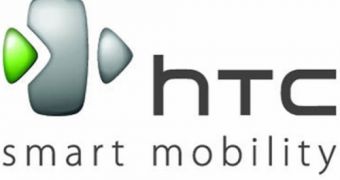According to the latest news on the Web, High Tech Computer (HTC) is on its way to release ten new handhelds this year, yet these devices are reported not to be using exclusively Qualcomm chipsets, but also to feature Ericsson's Mobile Platform (EMP). The move seems to have been triggered by the fact that products incorportaing the chipsets were reported to feature some performance issues, mainly connected to the graphics experience.
While Qualcomm is stated to be working on the improvement of its chips and might turn things in its favor, at least as far as drivers are involved, HTC's HSPA devices are reported to feature Ericsson's Mobile Platforms so as to become competitive products able to stand up at the top, or at least near it.
As for EMP, it is considered to be one of the smallest tri-band 3.5G chipsets in the world, which means that we might see a next-generation of ultra-small and thin smartphones coming soon.
In related news, we learn that HTC has announced yearly earnings for the fiscal 2008 ended on December 31st, and posted a 28.65 percent on-year growth, translated into a $4.61 billion revenue. During the fourth quarter of the past year, the company registered a 21.45 percent growth, compared to the same period of the previous year.
The company also announced that its Touch Diamond-series models and the Android-based G1 phone shipments managed to reach their expected targets during the last year. HTC additionally stated that it projected a 20 percent revenue growth for this year. The ten new models the maker plans to release on the market in 2009 include Microsoft Windows Mobile and Google Android platform models, sources from the company state, cited by Digitimes.
The news site also reports that HTC announced on December 31st the acquisition of a 16,515 square-meter plot in Taoyuan, Taiwan, which would serve the deployment of another production base. The new plant should enter production in September 2009, the company explained.

 14 DAY TRIAL //
14 DAY TRIAL //